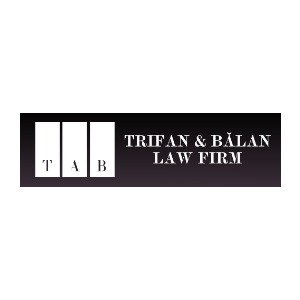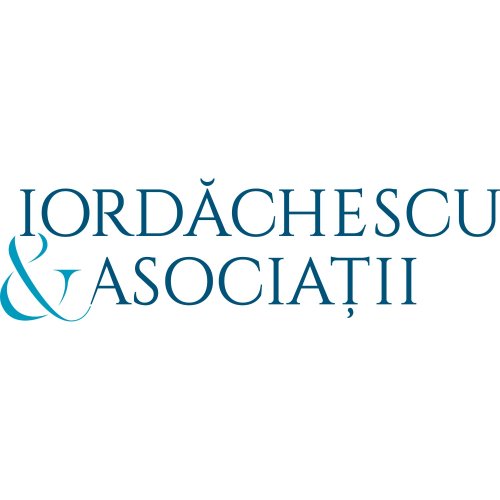Best Project Finance Lawyers in Cluj-Napoca
Share your needs with us, get contacted by law firms.
Free. Takes 2 min.
List of the best lawyers in Cluj-Napoca, Romania
About Project Finance Law in Cluj-Napoca, Romania
Project finance is a specialized area of law and finance that supports the development, funding, and completion of large-scale ventures, such as infrastructure, energy, industrial, and public-private partnership projects. Cluj-Napoca, considered a top business hub in Romania and Transylvania, has experienced significant growth in sectors like real estate, energy, and technology. With this development comes a growing need for robust legal frameworks to handle the complexities of financing large projects. Project finance in Cluj-Napoca often involves establishing special purpose vehicles (SPVs), structuring agreements between sponsors, lenders, contractors, and governmental entities, and managing regulatory compliance under Romanian and EU law.
Why You May Need a Lawyer
Project finance transactions in Cluj-Napoca are complex and involve multiple parties, significant capital flows, and long-term contractual arrangements. You may require a legal expert in the following situations:
- If you are a sponsor or developer seeking to secure financing for a major infrastructure, energy, or public-private project
- When negotiating and drafting finance, construction, and offtake agreements with other parties
- If you are a lender, investor, or financial institution evaluating risk and protecting your investments
- To ensure full compliance with Romanian laws, EU directives, environmental regulations, zoning, or licensing requirements
- When navigating disputes, restructuring, or insolvency scenarios arising from a project
- If you are a foreign investor unfamiliar with local business culture, regulations, and institutional expectations
Local Laws Overview
Project finance in Cluj-Napoca is governed by a mix of Romanian national legislation, EU regulations, and local administrative frameworks. Key legal areas relevant to project finance include:
- Civil Code of Romania, governing contract and obligation matters
- Company Law, covering the formation and management of special purpose vehicles and joint ventures
- Law 50/1991 on Construction Permits and Law 10/1995 on Construction Quality, important for infrastructure and real estate projects
- Environmental protection laws, which are particularly relevant for energy and large-scale developments
- Public procurement legislation and rules for public-private partnerships
- The Energy Law for projects in the renewable, gas, and conventional power sectors
- Banking and financial regulations, including security interests and collateral registration
Local authorities in Cluj-Napoca, such as the City Hall and County Council, may impose additional permitting, zoning, or compliance requirements. Working with a lawyer ensures navigation of both national and local frameworks.
Frequently Asked Questions
What is project finance and how does it differ from traditional lending?
Project finance is a method of funding in which lenders evaluate the project's cash flows and assets instead of the borrowers' balance sheets. The financing is typically non-recourse or limited recourse, which means repayment depends mainly on the project's performance, not the overall creditworthiness of the sponsors.
What types of projects in Cluj-Napoca often use project finance structures?
Large infrastructure, energy (especially renewable energy), real estate developments, transportation facilities, and public-private partnerships often use project finance structures in Cluj-Napoca.
What legal entities are commonly used for project finance in Romania?
Special purpose vehicles (SPVs), usually limited liability companies (SRL) or joint stock companies (SA), are established to isolate project assets, contracts, and liabilities from sponsors.
What regulatory permits or approvals are necessary for a project finance transaction?
Depending on the project, you may need construction permits, operating licenses, environmental consents, zoning clearance, and sometimes specific sectoral permits, especially for energy or infrastructure developments.
Can foreign investors participate in project finance in Cluj-Napoca?
Yes, Romanian law allows foreign companies and investors to participate in project finance deals, but compliance with local ownership, licensing, and reporting requirements must be ensured.
How are risks managed and allocated in project finance agreements?
Risks are generally allocated to the parties best positioned to manage them. This is achieved through detailed contractual arrangements covering construction delays, supply shortages, regulatory changes, and more.
What types of security can be offered to lenders in project finance deals?
Security usually includes pledges over project assets, bank accounts, shares in the SPV, assignment of contract rights, and, in some cases, mortgages over land and buildings.
Are there special tax considerations for project finance in Romania?
Yes, tax planning for project finance structures, particularly regarding VAT, withholding taxes, and transfer pricing, is essential. Consulting a tax-savvy project finance lawyer is highly recommended.
What happens if the project runs into financial difficulties?
In case of distress or insolvency, project finance agreements usually provide for step-in rights for lenders, restructuring options, or enforcement of security. Romanian insolvency law would also apply.
How long does it typically take to close a project finance transaction in Cluj-Napoca?
Timelines can vary widely based on project complexity, size, and the speed of obtaining necessary permits, but transactions may take several months to over a year to close.
Additional Resources
To assist you in learning more about project finance in Cluj-Napoca, these resources are useful:
- Cluj-Napoca City Hall and Cluj County Council for local permits and development guidelines
- Romanian Ministry of Public Finance for regulations and incentives for large investments
- Romanian Energy Regulatory Authority (ANRE), if dealing with energy projects
- National Agency for Cadastre and Land Registration for real estate and land issues
- Romanian Chamber of Commerce and Industry for professional networking and investment support
- Professional associations and legal societies specializing in business and finance law
Next Steps
If you require legal help with project finance in Cluj-Napoca:
- Identify and consult a lawyer or legal firm experienced in project finance and relevant sectors in Cluj-Napoca
- Prepare documentation outlining your project, parties involved, and specific legal or financial questions
- Schedule an initial legal consultation to map out the main legal, regulatory, and business considerations
- Work closely with your legal team to conduct due diligence, draft and negotiate contracts, and secure required approvals
- Stay updated on Romanian and EU regulatory changes that may impact your project
- Consider engaging accountants, engineers, or other specialists for a comprehensive approach
Engaging legal expertise early in your project's life cycle can prevent costly delays and ensure smoother completion and operation. Legal advice tailored to your project, sector, and participant mix is key to successful project finance in Cluj-Napoca.
Lawzana helps you find the best lawyers and law firms in Cluj-Napoca through a curated and pre-screened list of qualified legal professionals. Our platform offers rankings and detailed profiles of attorneys and law firms, allowing you to compare based on practice areas, including Project Finance, experience, and client feedback.
Each profile includes a description of the firm's areas of practice, client reviews, team members and partners, year of establishment, spoken languages, office locations, contact information, social media presence, and any published articles or resources. Most firms on our platform speak English and are experienced in both local and international legal matters.
Get a quote from top-rated law firms in Cluj-Napoca, Romania — quickly, securely, and without unnecessary hassle.
Disclaimer:
The information provided on this page is for general informational purposes only and does not constitute legal advice. While we strive to ensure the accuracy and relevance of the content, legal information may change over time, and interpretations of the law can vary. You should always consult with a qualified legal professional for advice specific to your situation.
We disclaim all liability for actions taken or not taken based on the content of this page. If you believe any information is incorrect or outdated, please contact us, and we will review and update it where appropriate.
















